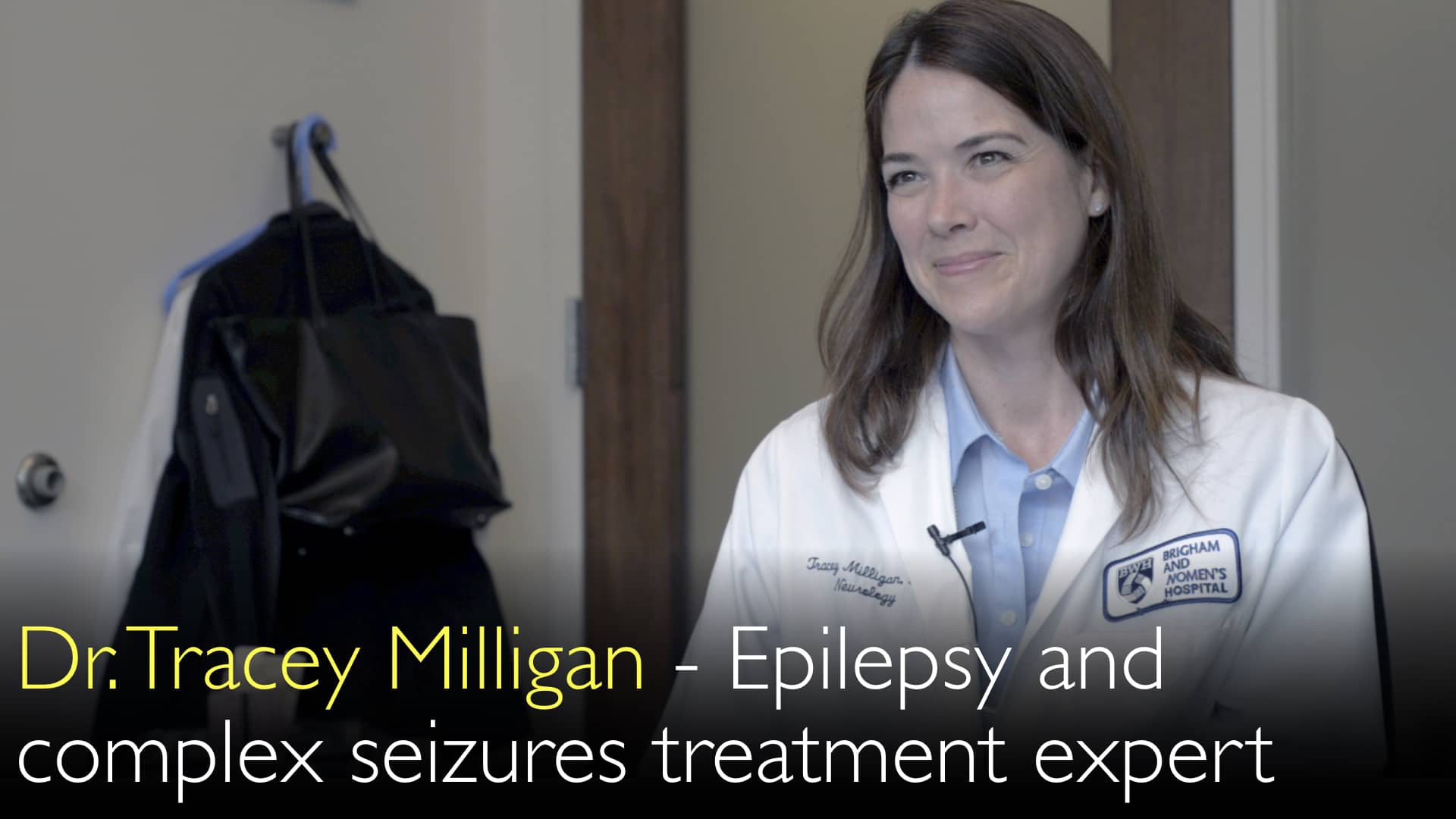Leading expert in epilepsy and seizure disorders, Dr. Tracey Milligan, MD, explains the complexities of seizure diagnosis and treatment. She highlights the high rate of epilepsy misdiagnosis. Dr. Tracey Milligan, MD, discusses the main causes of new onset seizures across different age groups. Her work focuses on advanced epilepsy care and public education to combat stigma.
Advanced Diagnosis and Treatment of Epilepsy and Seizure Disorders
Jump To Section
- Expertise in Epilepsy Care
- Causes of New Onset Seizures
- Age-Related Seizure Differences
- Epilepsy Misdiagnosis Challenge
- Public Education and Advocacy
- Full Transcript
Expertise in Epilepsy Care
Dr. Tracey Milligan, MD, is a highly qualified neurologist specializing in epilepsy. She holds the position of Assistant Professor of Neurology at Harvard Medical School. Dr. Milligan also serves as the Vice Chair for Education in the Department of Neurology at Brigham and Women's Hospital.
Her medical training includes an MD from Albert Einstein College of Medicine. Dr. Milligan completed her neurology residency at Brigham and Women's Hospital and Massachusetts General Hospital. She then pursued a specialized fellowship in epilepsy at Brigham and Women's Hospital.
Causes of New Onset Seizures
New onset epileptic seizures can arise from various causes. Dr. Tracey Milligan, MD, explains that identifying the root cause is critical for effective treatment. Common triggers include head injuries, brain infections, and strokes. Metabolic imbalances and genetic factors also play a significant role in seizure development.
Dr. Anton Titov, MD, discusses these causes with Dr. Milligan to provide clarity for patients. Understanding the origin of a seizure guides the choice of medication and therapy. An accurate diagnosis ensures that patients receive the most appropriate and effective care for their specific condition.
Age-Related Seizure Differences
Seizure causes and presentations often vary significantly by age group. Dr. Tracey Milligan, MD, notes that infants and children may experience seizures due to febrile episodes or genetic syndromes. In adolescents and young adults, head trauma or substance use can be contributing factors.
For older adults, strokes and neurodegenerative diseases like Alzheimer's are common seizure causes. Dr. Tracey Milligan, MD, emphasizes the importance of age-specific diagnostic approaches. This tailored strategy improves diagnostic accuracy and leads to better treatment outcomes for patients of all ages.
Epilepsy Misdiagnosis Challenge
Epilepsy misdiagnosis is a serious and widespread problem in neurology. Dr. Tracey Milligan, MD, points to research showing that 25% to 40% of adults diagnosed with epilepsy do not actually have the disorder. These patients often receive unnecessary and potentially harmful treatments.
Conditions like syncope, migraines, and psychogenic non-epileptic seizures are frequently mistaken for epilepsy. Dr. Anton Titov, MD, and Dr. Milligan discuss the importance of thorough evaluation. Advanced diagnostic testing, including prolonged video EEG monitoring, is essential to confirm a true epilepsy diagnosis.
Public Education and Advocacy
Beyond clinical care, Dr. Tracey Milligan, MD, is deeply committed to public education about epilepsy. She works to dispel myths and reduce the stigma associated with seizure disorders. Her efforts include publishing numerous articles in international peer-reviewed journals.
Dr. Milligan also frequently speaks at international conferences on neurology and epilepsy treatment. She advocates for patients facing prejudice and discrimination. This comprehensive approach aims to improve both medical outcomes and quality of life for individuals living with epilepsy.
Full Transcript
Dr. Anton Titov, MD: Hello from Boston! I'm Dr. Anton Titov, MD. We're with Dr. Tracey Milligan. She is Assistant Professor of Neurology at Harvard Medical School and Vice Chair for Education in the BWH Department of Neurology.
Dr. Milligan obtained her MD from Albert Einstein College of Medicine in New York. She did her residency in neurology at Brigham and Women's Hospital and Massachusetts General Hospital in Boston, and completed fellowship in epilepsy at Brigham and Women's Hospital.
Dr. Milligan's clinical and research interests are in the advanced treatment of epilepsy and epileptic seizure disorders. She has published dozens of articles in international peer-reviewed scientific journals and was invited to give many talks at international conferences on neurology and epileptic seizure disorder treatment.
Hello and welcome! Thank you! Epilepsy, or epileptic seizure disorder, is a relatively common medical problem. What are the main causes of the new onset epileptic seizures, and maybe they will be different by certain age groups?
Seizures are frequently misdiagnosed: one study found that 25% to 40% of adults did not have epilepsy even though they had that diagnosis and were treated for seizures. Dr. Milligan devotes her clinical and research career to diagnosis of complex and difficult-to-diagnose seizures.
She educates the public on all aspects of epilepsy. It includes work against frequent prejudice and discrimination of people with epilepsy.





